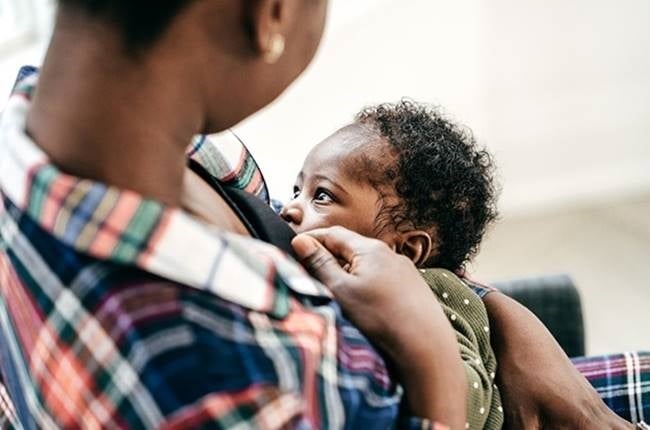
Chantell Witten is a lecturer at the University of Free State and serves as the Chairperson for the Child Health Priorities Association and the Nutrition Lead for the South African Civil Society for Women’s, Adolescents’ and Children’s Health (SACSoWACH).
"When I am hungry, I even breastfeed her my hunger".
These were the words from one of my research participants back in December 2018. Long before Covid-19’s arrival.
World Breastfeeding Week 2020, the annual global campaign to raise awareness about the importance of breastfeeding which has called on governments and all sectors of society to promote, protect and support breastfeeding, since 1992, was marked from 1 to 7 August this year.
Much of the world has sub-optimal breastfeeding rates, despite all these global and local breastfeeding promotion efforts.
This year’s global theme is "Support breastfeeding for a healthier planet" and the National Department of Health localized theme is "Support breastfeeding for a healthier South Africa".
But how can we call on women to breastfeed when women’s circumstances are far from favourable to enable them to breastfeed successfully, much less optimally?
Women in South Africa bear the brunt of poverty, unemployment, abandonment and hunger.
While these were the ‘shocking’ findings of the recent NIDS-CRAM study, these conditions were known for decades.
The first, demographic and health survey, post-apartheid, reported in 1998 that breastfeeding rates were sub-optimal with only 7.2% of infants less than 6 months exclusively breastfeeding, and the breastfeeding duration was about 15 months.
Also read: OPINION | 'Breastfeeding best for babies, best for the planet'
We acknowledge that HIV had a massive negative impact on the breastfeeding landscape of South Africa but since 2011, South Africa had introduced life-long antiretroviral treatment for all pregnant HIV-positive mothers to render breastfeeding safe.
Since then, all women are encouraged to breastfeed exclusively for the first six months and to continue breastfeeding until two years of age.
Despite this, the recent demographic health survey of 2016, reported the highest proportion of children never breastfed at 25% and though a significant five-fold increase since 1998, only a third of infants under six months were exclusively breastfed at 32%.
My PhD research was to explore what were the psycho-social barriers and enablers of exclusive breastfeeding rates in a cohort of mothers with infants aged two weeks to 24 weeks.
The highlights of my research found that mothers were well aware of the benefits of breastfeeding and mothers viewed breastfeeding as good mothering which brought them joy and contentment but amidst all these positive feelings were the hostile home and social environment that mothers experienced.
Not enough food in the home to help mothers make ‘enough’ breastmilk was a strong barrier to their breastfeeding intentions.
Mothers had also completely internalized the nutrition education they received from the clinics that good health needs a good diet. In the absence of a good diet, mothers questioned the nutrition value of their breastmilk.
Also see: 'It carries no risk': Local dietitian dispels Covid-19 myths around breastfeeding
In the absence of a supportive home environment from absent partners, demanding family and cultural practices, mothers reported feeling unsupported and unloved. These were disheartening findings.
If we are to support women to breastfeed, then we need interventions that address the hostile environment that women are confronted with. We need interventions that don’t come around once a year for a week of hype and preaching to the converted.
Mothers know that breast is best, mothers know about the healing and protective powers of breastmilk, what mothers don’t know is how to navigate the difficulties of their lives.
How to access food when they are hungry, and they still need to produce enough breastmilk for their baby. How to access good food when they are reliant on already stretched households to provide them with much needed good food like meat, milk and vegetables.
How to earn love when their partner leaves them and when their family consider them and their baby a burden. We need interventions of food support for pregnant and breastfeeding mothers and young children.
Must read: I lost my baby's clinic card, what now?
Food support that will help alleviate the increasing levels of stunting and obesity in children. These are issues and findings that we have known for a long time, decades.
These are not new issues; these are long-standing that demand government and all sectors of society to put women and their children first.
Breastfeeding provides life-long benefits and therefore any investments in breastfeeding support and promotion will have multiple returns but if we want to meet the Sustainable Development Goals then women and children must be prioritized.
To improve breastfeeding, we need to improve the social conditions for women.
And if we want a healthier planet, we need healthier environments for women.
Chatback:
Share your stories and questions with us via email at chatback @ parent24.com. Anonymous contributions are welcome.
Don't miss a story!
For a weekly wrap of our latest parenting news and advice, sign up to our Friday Parent24 newsletter.




 Publications
Publications
 Partners
Partners










